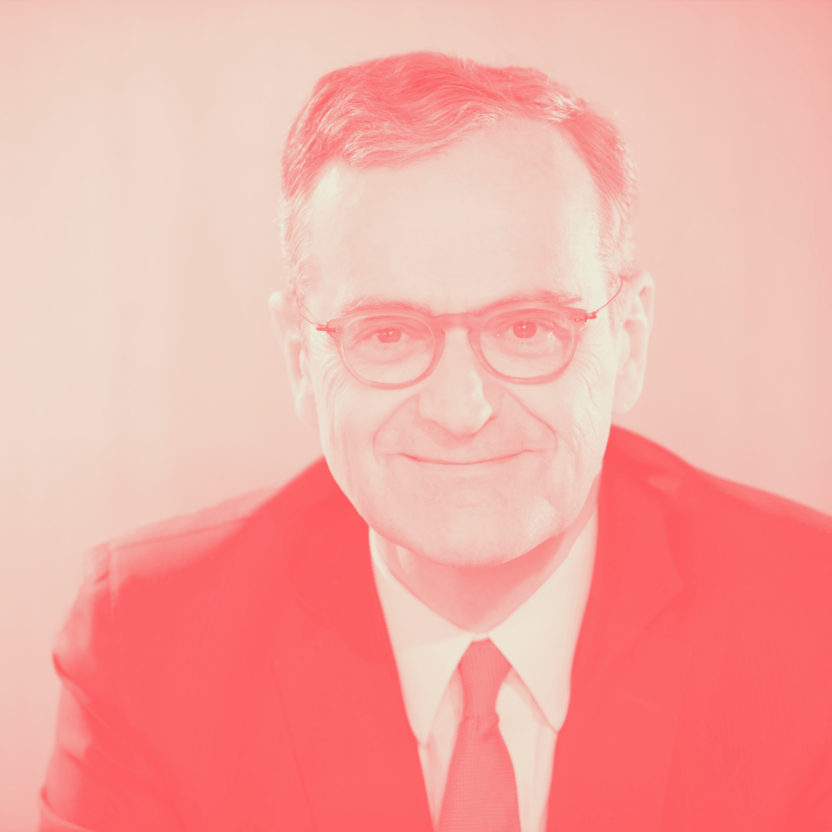News 17 October 2022
Actor’s views: Roch-Olivier Maistre

On January 1, 2022, Arcom was born out of the merger of the Conseil supérieur de l’audiovisuel (Superior Audiovisual Council, or CSA) with the Haute autorité pour la diffusion des œuvres et la protection des droits sur Internet (Supreme Authority for the Distribution of Works and Protection of Copyright on the Internet, or Hadopi). Can you tell us about this new authority and its missions?
In addition to the historical missions of the CSA and Hadopi, Arcom’s field of competence has been extended to the new issues of the digital sphere. These missions now fully include the fight against the manipulation of information and online hate, as well as the protection of Internet users, especially young people. Arcom is also now entitled to get the major international video-on-demand (VoD) and subscription platforms to participate in the financing of the French audiovisual creation industry. Finally, the defence of freedom of communication, freedom of expression and pluralism of ideas and views remains at the heart of the regulator’s action. Today, our authority is thus in a position to operate a new type of regulation, able to better respond to the major challenges of our time.
The prerogatives of Arcom (formerly, of the CSA) have been significantly extended in recent years. The new European legislation aimed at regulating digital services (Digital Services Act, or DSA) should further expand the missions of audiovisual regulatory authorities. How do you envision the role of Arcom with respect to this new regulation?
The upcoming adoption of this text provides Europe with an innovative and balanced model for regulating online platforms, especially the very large social networks and marketplaces. This ambitious text establishes an European regulatory framework capable of limiting certain negative phenomena related to digital services, such as online hate, manipulation of information, counterfeiting, and ensures, more generally, the protection of users online.
Although Europe is the right level to regulate very large platforms, the consequences of these phenomena mainly materialise at the level of the Member States. Arcom is therefore preparing to implement this new mechanism at the national and European levels. At the national level in collaboration with other competent authorities, notably the CNIL (France’s data protection authority) on the provisions of the DSA related to the General Data Protection Regulation (GDPR) or the Directorate General for Competition, Consumer Affairs and Fraud Control (or DGCCRF) on the provisions of the DSA dealing with marketplaces; and at the European level with the members of the European Regulators Group for Audiovisual Media Services (ERGA) and the European Commission.
The DSA establishes, among other things, a mechanism for increased cooperation between national independent authorities and between these authorities and the European Commission. What are your thoughts on this approach? How can it contribute to avoiding the pitfalls observed in the supervision of the implementation of the GDPR?
The DSA is characterised by differentiated obligations depending on the size of the targeted operators and by a three-level governance: the European Commission level – concerning the compliance of very large platforms and search engines with the DSA; the level of the EU Member States through the action of the Digital Services Coordinator (DSC) and the various competent national authorities (DGCCRF and CNIL, for instance) regarding smaller platforms; and the level of the European Board for Digital Services, which brings together the European Commission and the DSCs and which will ensure regulatory consistency within this new network of digital regulators.
This architecture will allow a governance that balances the powers of the European Commission and that of the national coordinators. It will be particularly important for the Commission, for whom this mission is new, to rely on the experience and contributions of national regulators to effectively and appropriately exercise its authority over very large platforms. The proper coordination of these multiple authorities will play a key role in the effectiveness of the mechanism. The digital transformation requires a new way of organising public action, one whereby we act as a network, at the European level, within each state, and locally. Furthermore, this transformation cannot take place without listening to citizens and without their active contribution to it.
While we can commend the reaching of a political agreement on this text in a very short time, many elements related to its implementation remain to be defined. In this respect, what are the elements that will be decisive?
In the coming months, the European Commission will designate the very large platforms and search engines affected by this new regulation. It will also set up a team dedicated to the implementation of the DSA (and DMA). The establishment of the new governance, the upskilling of the Commission and competent national authorities, the designation of the DSC and other competent national authorities, but also the definition of the articulation between these authorities in each Member State, will be decisive steps towards the effective supervision of platforms as of 2023. Besides, the issue of access to data for researchers, which will be addressed by the Commission in delegated acts, will be essential. On this point, Arcom has launched a first public consultation in May in order to anticipate the implementation of this obligation which is a central feature of the regulation.
-

Publication 3 August 2020
Digital platforms: For a real-time and collaborative regulation
-

Publication 3 July 2020
Moderating our (dis)content: renewing the regulatory approach

